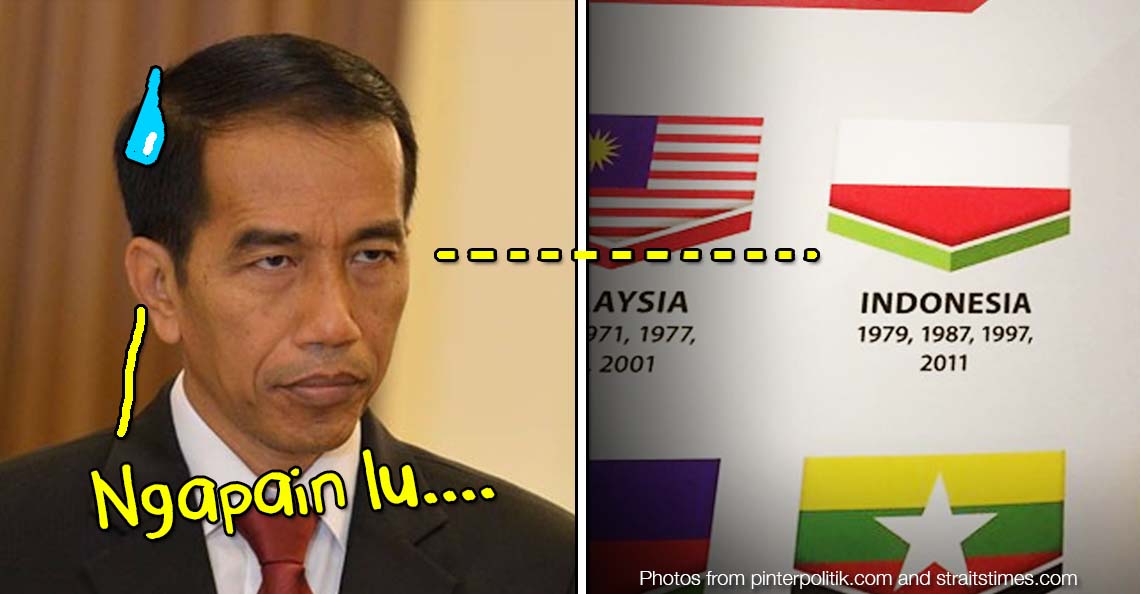Eh, can Malaysian Chinese betul-betul balik Cina (and get citizenship)?

- 2.7KShares
- Facebook2.7K
- Twitter4
- LinkedIn5
- Email8
- WhatsApp12
*Article ni available dalam bahasa Melayu, tekan sini untuk baca!
Hey ugaiz! Hey ugaiz! Wanna hear a joke?
Q: What has more race issues than Formula One?
A: Malaysia

Yea… sorry, we didn’t know if that wasn’t funny because it was a bad joke or because it was true; since it just seems that every so often, we’d be reading the news or comments on social media and be hit with a landslide of racist comments.

Y’see, last week Red Shirt Rally guy Jamal Yunos claimed that business in Petaling Street was Chinese-dominated and that the Chinese weren’t sharing a slice of the pie. Jamal later threatened another riot in Petaling Street on September 26th unless action was taken against the sale of illegal and pirated goods. He was arrested and the riot was cancelled, but whatevs because…
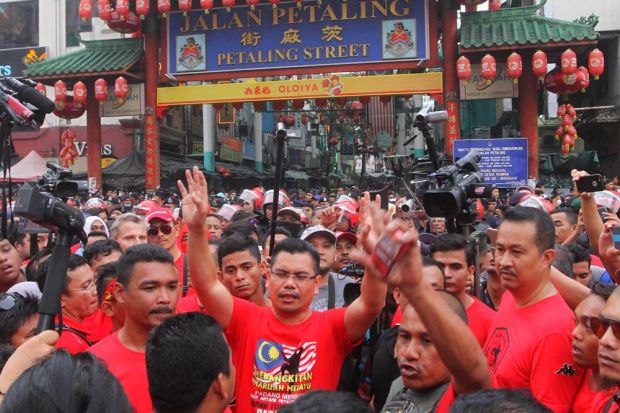
This time, the Balik Cina comments were triggered by… China.
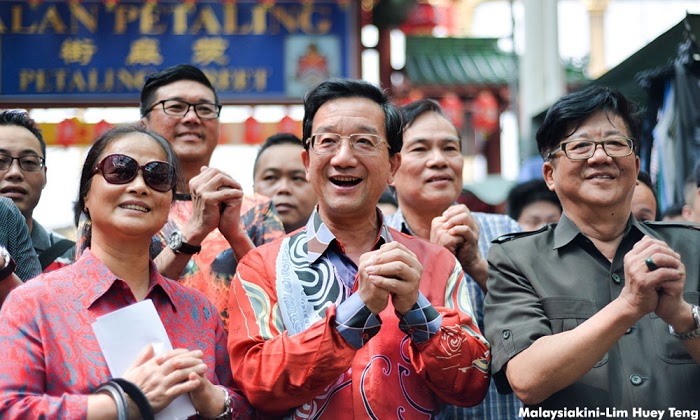
China literally walked in and joined the hoohah when its ambassador, Huang Huikang, dropped by Petaling Street on the day of the rally and was accused of interfering with Malaysia’s domestic affairs. While Huang said he was there to observe the mooncake festival and demonstrate that the area was still safe to visit, his statement at the end of the visit seemed to indicate something a little extra:
“The Chinese government has always pursued peaceful co-existence in international relationship and non-interference in the internal affairs of other countries. … But with regard to the infringement on China’s national interests, violations of legal rights and interests of Chinese citizens and businesses which may damage the friendly relationship between China and the host country, we will not sit by idly.” – Huang Huikang, as quoted by The Malay Mail Online.
Jamal Yunos jumped on this (once he got out of jail) by saying that it was proof that the Malaysian Chinese can balik cina if they’re not happy here:
“This is a clear message that the ethnic Chinese have a place to complain and protect their rights apart from Malaysia. … They have land or their country of origin China, and if anything were to happen to them they still have a place to rely on.” – Jamal Yunos, as quoted by The Malay Mail Online.
So this got some people asking (as evidenced by the chat below) – Can the Malaysian Chinese really balik Cina if they wanted to, and will China accept them?

Yep. China actually HAS accepted overseas orang Cina before!

Before we go into the reasons, here are some examples:
Malaysia
Back when this writer was still taking the schoolbus (van, actually), I was the first along the driver’s route so I always got the front seat.
My Chinese uncle van driver would tell me stories about his brother, and meeting him for the first time in 40+ years since his brother was sent to China for safety when the Japanese invaded Malaya in 1941. Some Malayan Chinese also returned to China to join the fight against the Japs. His brother was unable to return due to China’s adoption of Communism after the war.
Vietnam
Similarly in 1978, the Vietnamese government also introduced a program that cut back on private trade and commerce which (surprise surprise) affected many Chinese traders. This program allowed their property to be confiscated and for entire families to be forcefully relocated, prompting China to send ships to rescue the “victimized Chinese”. The ships actually stayed outside Vietnamese territorial waters for a few weeks while both governments tried to come to an agreement, eventually returning empty when both sides couldn’t come to one. However, China did accept as many as 660,000 Vietnamese Chinese who managed to find some way to escape.
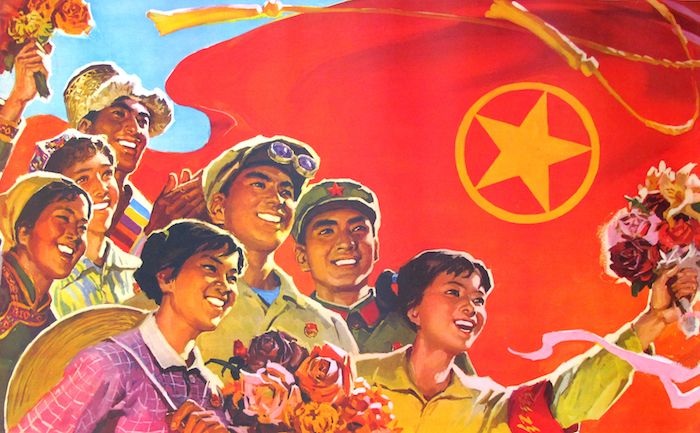
Indonesia
The backstory to the status of Chinese Indonesians is too complicated to explain here, but China came to the rescue of Chinese Indonesians twice – once in 1959 when President Sukarno implemented his economic nationalism policy which prevented foreigners from doing business in rural areas, and in 1965 during the Indonesian Communist Purge. Both times, China sent rescue ships with Chinese officials urging the Chinese population to return “home”:
“We want none of our dear ones to suffer in foreign lands. … It is our hope that they all come back to the arms of the Motherland.” – Unnamed Chinese official, as quoted in the Los Angeles Times.
The massacre of the Indonesian Chinese also caused China and Indonesia to break off diplomatic relations from 1967 to 1990.
But… why does China even care about the Chinese who are staying outside of China?
Blame the jus
If you paid attention in Sejarah class, you might have heard of a term called Jus soli.

Jus soli is a fancy Latin word for “Right of Soil” which means that any person born within a certain country would automatically become a citizen of that country. Some countries place restrictions on this though, such as requiring that at least one parent to be a citizen of that country.
However, China’s approach to citizenship was based on another principle called Jus sanguinis. This the fancy Latin word for “Right of Blood,” meaning that (in China’s context) citizenship is given based on ethnic roots. Jus sanguinis became the basis of a royal proclamation by the Manchu emperor that all people of Chinese descent could return to China at will. This was later adapted into China’s first citizenship law in 1909 which claimed every child of a Chinese father or mother, as a Chinese citizen. What this means is that as long as you have Chinese blood, you were, in the eyes of the Chinese government, a citizen of the People’s Republic of China regardless of where you were born.
Now, bringing it back to Ambassador Huang’s Petaling Street visit… During a speech presented the day after his visit, Huang reminded the Malaysian Chinese that China is still the home of their parents – adding that it was something he needed to emphasize to all Chinese living abroad.
“No matter how many generation you are of Chinese overseas, China is always the home of your parents.” – Huang Huikang, as quoted by The Rakyat Post.
Considering that China has defended Huang’s actions, does this mean that…. GASP!

(Un?)fortunately they stopped it in 1980

A number of sources have noted that China’s concern of the overseas Chinese wasn’t completely due to the pure goodness of their hearts. The then-new People’s Republic of China wasn’t well-accepted (or trusted since, Communist) so they saw the overseas Chinese first as a way to establish contact with other countries such as Indonesia with the Sino-Indonesian Dual Nationality Treaty, and secondly as a way to raise funds and acquire skills from the returning Chinese.
However, they later realized that it really wasn’t such a great idea because it not only worsened diplomatic relations with other countries (like Indonesia and Vietnam mentioned earlier) but also made life worse for the overseas Chinese since they can never be fully separated from their link to China thanks to the unofficial secondary citizenship from China, and will always be viewed as an outsider since they could – if they wanted to – balik Cina at any time.
China revised its citizenship law in 1980, which now states that a person whose Chinese parents have settled abroad and have acquired foreign nationality is not entitled to Chinese citizenship. Ironically this revised law is now more restrictive than those of other countries, with no option for dual citizenship.
So yea… those asking the Malaysian Chinese to balik Cina are 36 years too late 🙂
But if given the option, would you balik Cina?
Obviously, the poll below is for our Chinese readers #sorryracist
[interaction id=”560ea544f7217adc4bc60b99″]
If you really think about it, going back to China makes perfect sense. The Chinese economy is booming, they’re poised to replace the US as a global Superpower, and there’ll be no Jamal Yunos types to ask you balik Cina because you’re already there!

There’s even a pretty compelling argument that because of jus sanguinis and the Chinese tradition of working overseas for economic reasons, Chinese migrants were never able to fully integrate into their new countries because they always intended to return to China. This is why they’ve established Chinese schools and placed so much importance on maintaining their culture and language – even passing it on to their children who were born in the new country.
But that was generations ago.
The integration of the Chinese in this region has greatly improved in recent memory. In Australia, Melbourne elected it’s first Chinese Lord-Mayor in 2001 and there’s Penny Wong, who was born in Sabah to a Chinese-Malaysian father, and became the first Asian-born member of the Australian cabinet as well as its first openly lesbian one.
In Indonesia, steps have been taken to avoid another anti-Chinese riot like the one in 1998 by discarding barriers imposed by the previous governments – allowing Chinese Indonesians to use the Chinese language, celebrate festivals, and encouraging political and social involvement. And if you didn’t know it already, the next fact might blow your mind.
Jakarta’s current mayor is Basuki Tjahaja Purnama – a Chinese Christian.

*Note: A reader (Thanks Izzu and Nopadon!) informed us that “Tjahaja” is pronounced “Cahaya” or “Yahaya”. It’s old Indonesian spelling based on Dutch.
And in Malaysia, well… um… this writer at least, regards Malaysia as home. As a personal note, I don’t speak Chinese very well. I spent a week eating beef noodles in China because all I knew how to say was “niu ro la mein” (Beef noodles) and “xie xie” (Thank you), and I don’t know any relatives in China, and neither does my 92-year old grandmother. Heck, we don’t even know which village our ancestors were from. Every trip to China I’ve made was as a tourist, and Malaysia was the home I returned to. Really, the only time I ever chose China was when I played Command & Conquer: Generals at the cybercafe.
And remember that Whatsapp chat screencapped in the beginning of this article? Here’s the later part of the conversation:
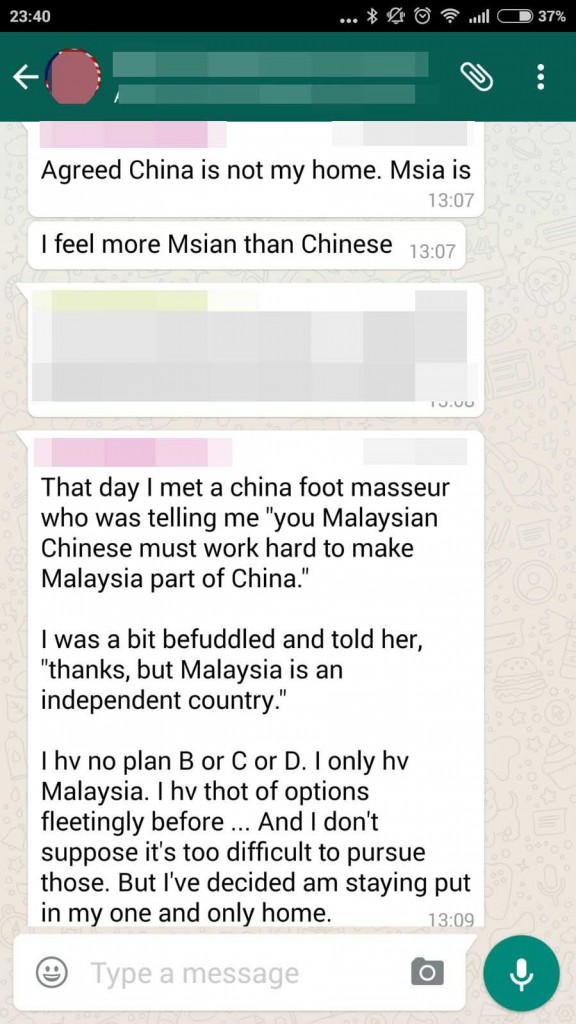
“That day I met a china foot masseur who was telling me “you Malaysian Chinese must work hard to make Malaysia part of China.”
I was a bit befuddled and told her, “thanks, but Malaysia is an independent country.”
I hv no plan B or C or D. I only hv Malaysia. I hv thot of options fleetingly before … And I don’t suppose it’s too difficult to pursue those. But I’ve decided am staying put in my one and only home.”
- 2.7KShares
- Facebook2.7K
- Twitter4
- LinkedIn5
- Email8
- WhatsApp12

